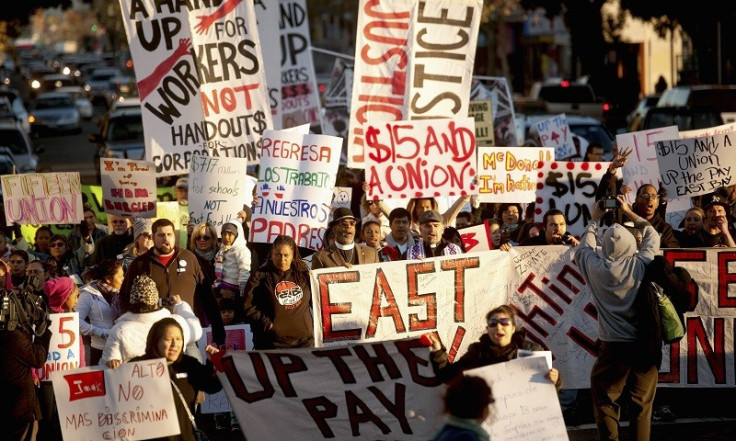US Government Urged to Raise Minimum Wage by Economic Nobel Laureates

The US government was urged by 75 economists, seven of which were recipients of the Nobel Prize in Economic Sciences, to raise the minimum wage for the country's workers.
According to a letter by the lobby group, the economic heavyweights have asked the government to increase the hourly minimum wage to $10.10 by 2016, from $7.25, after highlighting that research shows that higher pay does not lead to less jobs.
Among signatories of the letter are Nobel Prize winners Kenneth Arrow, Peter Diamond, Eric Maskin, Thomas Schelling, Robert Solow, Michael Spence and Joseph Stiglitz.
"[Past increases in hourly pay have had] little or no negative effect on the employment of minimum wage workers, even during times of weakness in the labor market," said 75-strong group of economists.
"A minimum wage increase could have a small stimulative effect on the economy as low-wage workers spend their additional earnings."
US President Barack Obama pledged in his 2013 State of the Union message to provide a nationwide increase in the minimum wage to $9 despite legislative pushes being stalled at the Congress level.
He said that "no one who works full time should have to live in poverty.''
Last summer, thousands of fast food workers across the US staged strikes over pay.
The organisers of the industrial action across more than 100 cities have called for the country's federal minimum wage to be increased to $15 per hour.
Actions were seen in New York, Chicago, Washington, as well as Detroit, Michigan and many other US cities.
In particular, 100 protestors in Chicago marched along Michigan Avenue, one of the second city's biggest streets, chanting "we can't survive on $7.25".
The current minimum wage level means someone working 40 hours per week, 52 weeks per year, receives an annual income of only $15,080, according to the Economic Policy Institute.
The think tank claimed the figures mean families with two or more children on the minimum wage, will be below the country's poverty line.
Only 2.2% of jobs in the fast food industry are managerial, professional, or technical occupations, according to the National Employment Law Project (NELP).
The organisation also said front-line workers make up a vast majority (89.1%) of all jobs in the fast food industry and receive a median hourly wage of $8.94 per hour.
In contrast, the NELP said first-line supervisors, with a median hourly wage of $13.06 per hour, make up the remaining 8.7% of jobs in the fast food industry.
© Copyright IBTimes 2025. All rights reserved.






















